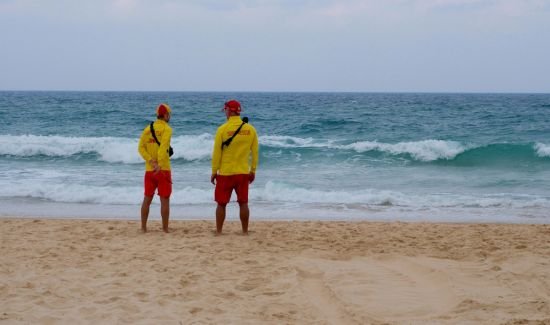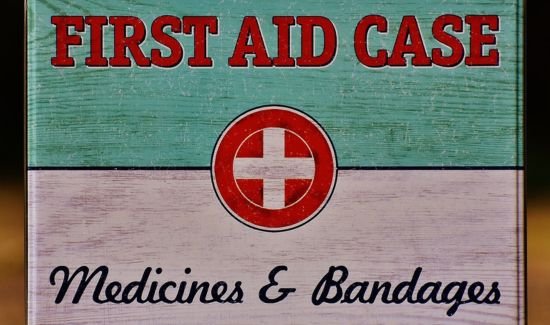
While spending days near the sea, following essential safety tips at the beach makes a fun and safe experience certain. Whether it is staying close to a lifeguard, staying hydrated, or caring for sea life, these tips will keep you and your family safe while enjoying the sea. Be sure to explore our top 15 manufacturing safety tips for more insight into keeping the environment safe.
Table of Contents
1. Learn to swim
Learning to swim is the main safety tip for any visit to the beach. It reduces the risk of drowning and allows you to splash in the water without discomfort. 2018 for example, a family in California was cut off by flooding. The swimming-loving parents kept their children alive until rescuers arrived, which helped save their lives. If you or a family member is not a strong swimmer, take a swim lesson before you travel to the beach. For more safety tips for a safe and fun summer at the pool, check out our top 15 pool safety tips for summer. This guide will help you and your loved ones stay safe while enjoying the water.
2. Lifeguards’ close encounters

Lifeguards are adept at giving immediate answers in an immediate situation. They always choose a part of the beach where a lifeguard is present so that if there is an issue, they can get immediate help. In 2020, a young man in Florida was electrocuted, but once again a catastrophe was averted due to the lifeguard’s immediate answer.
3. Be aware of the weather and water conditions
Check the weather and water conditions before going to the beach. Look for rip currents, strong winds, or jellyfish warnings. In 2019 a family in Australia noticed a strong rip current warning and needed rescue. Luckily everyone survived but it taught us that it is important to pay close attention to the weather and water conditions.
4. Never swim alone

Always swim with someone. Having someone with you increases protection because that person can call for help in an emergency. In 2017, a person swimming alone in Hawaii stayed away from the shore when he felt dizzy. He was lucky that someone else came to the beach and called for help, which helped in saving his life.
5. Keep an eye on the tide
Rapid and sudden wave changes can cause dangerous conditions such as strong currents or buried rocks. The Coast Guard had to rescue a group of passengers in the UK in 2016 after exposure to rising waves. This article highlights the importance of watching the waves to avoid risk.
6. Apply sunscreen

on top It’s important to protect your skin from harmful UV rays that can cause sunburn and skin cancer. A 2015 study found that people who don’t wear sunscreen have a higher risk of getting severe sunburn, which can lead to long-term skin damage.
7. Bring plenty of water to drink
It is important to stay hydrated in the summer to avoid dehydration and heatstroke. In 2014 a small child in Texas fell victim to heat exhaustion due to dehydration. Luckily his condition improved after getting immediate help from the hospital.
8. Be careful of toxic substances

In some coastal areas, toxins or pollutants can poison the water. In 2013, swimmers in Florida reported skin irritation and breathing problems after red tide (a toxic algae bloom) in the water. Always consult local advisors before swimming to be aware of water quality.
9. Protect yourself from underwater stones and debris
Hidden underwater stones, shells, or debris pose a serious injury risk. In 2012, a teenager in California cut his foot on a sharp stone while swimming which necessitated stitches. Always work cautiously and be aware of possible hazards in the water.
10. Be sure to bring your first aid box

Accidents can happen anytime, and having a first aid box is a great way to treat minor injuries immediately. In 2011, a family in South Carolina was successful in treating their child’s jellyfish sting immediately using the vinegar found in the first aid box.
11. Don’t touch marine life
It is interesting to see marine life, but it should be observed without touching it. Some animals, such as jellyfish or some fish, may be pleasant to look at but they can be poisonous. In 2010, a tourist in Australia was stung by a box jellyfish, the most poisonous marine animal in the world. Luckily, a local help saved his life. Respecting marine life keeps you safe from such dangerous encounters.
12. Boaters should drive in a safe way

If you intend to boat, follow all safety regulations, including wearing life jackets and avoiding alcohol. In a boating accident in Florida in 2009, people who sustained serious injuries had been drinking while boating. Easy boating practices are a way to enjoy your time on the water without getting stressed out.
13. Always Call for Help if You or Someone Else Is in Danger
Don’t hesitate to call for help in an emergency. In 2008, a New Jersey swimmer suffered a heart attack but was quickly saved after emergency personnel were called. Prompt action can make a difference in difficult situations.
14. Stay Hydrated

Hydration is important for your health, especially when you spend a lot of time in the hot sun. In 2007 a beachgoer in Florida suffered a heatstroke due to dehydration. Immediate treatment and drinking water saved his life. Always bring water with you and drink plenty of water during the day.
15. Take care of your health and the sea
Keep an eye on any health issue that can help make your beach outing safe. In 2006, a woman who had asthma felt difficulty breathing while swimming in cold water. What effect can this sea of women have on your health? It is a way to enjoy your beach time without any worries.



